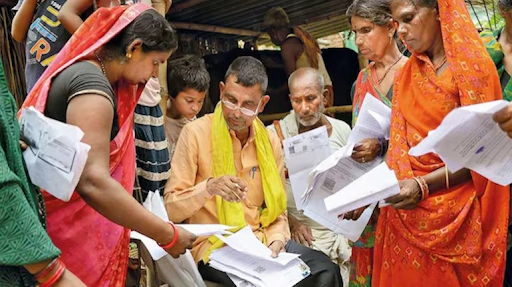



The National Sports Governance Bill, 2025, was introduced in Lok Sabha to establish national sports bodies, including the National Olympic Committee, National Paralympic Committee, and National and Regional Sports Federations, with international affiliation. The central government will establish a National Sports Board, a National Sports Tribunal, and elections.

Copyright infringement not intended
Picture Courtesy: DDNEWS
The National Sports Governance Bill, 2025 was introduced in Lok Sabha on July 23, 2025.
Legal Recognition & Unified Framework => Bring all sports federations, including the Board of Control for Cricket in India (BCCI), under a single, legally binding set of rules.
Institutional Reforms => Improve accountability, streamline how sports organizations operate, and reduce legal battles in sports administration.
Athlete-Centric Policies => Prioritize athlete rights, their well-being, and ensure they have a say in administrative roles.
Global Alignment => Align India's sports administration with the rules of the Olympic Charter, which is essential for India to bid for and host major international events like the 2036 Olympics.
The National Sports Board (NSB)
It will be in charge of officially recognizing national sports organizations, and it can also stop their recognition or cancel it if they don't follow the rules. It will also register their smaller, state-level units.
Key Tasks:
Who will be on the NSB? => The Central Government will appoint a chairperson and a specific number of members. A special committee will recommend these people.
Funding Rule => Only sports bodies that the NSB recognizes will receive money from the Central Government.
The National Sports Tribunal (NST)
It will solve the legal disagreements, acting as a specialized body that makes decisions.
Who will be on the NST? => A current or former Supreme Court Judge or a Chief Justice of a High Court will lead the NST. Two other members, who are experts in sports, public administration, or law, will also be part of it.
What types of cases will it handle? => Mainly deal with arguments related to elections, how players get selected for teams, and how sports organizations manage themselves internally.
What cases will it NOT handle?
|
What is NADA? NADA (National Anti-Doping Agency) is an independent body under the Ministry of Youth Affairs & Sports. It aims to ensure fair play in sports by fighting against doping (when athletes use banned substances to improve performance). It collects samples from athletes, manages the results, educates athletes about doping, and investigates doping cases to promote clean sports across India. Appeals from NST => If someone disagrees with a decision from the NST, they can appeal to the Supreme Court of India. However, they must appeal to the Court of Arbitration for Sport (CAS), if international rules say. |
|
What is the Court of Arbitration for Sport (CAS)? It is an international organization, based in Switzerland, that helps resolve sports-related legal disputes through arbitration or mediation. It was created in 1984 by the International Olympic Committee (IOC) to provide a fair and quick way to resolve disagreements in the sports world. CAS handles a wide range of cases, including doping violations, eligibility disputes, contract issues, and disciplinary matters. |
Historically, the BCCI has operated on its own, registered under a state law (Tamil Nadu Societies Registration Act, 1975). It has not officially been recognized as a National Sports Federation (NSF) by the government.
Impact of the new Bill
|
What is the Right to Information (RTI) Act? It is a law passed in 2005, allows any citizen to ask for information from government bodies, to promote transparency and accountability in how public authorities work and helps fight corruption. |
The Bill mandates the formation of national sports governing bodies. These include:
The Bill requires these organizations to set up functional committees, implement a strict code of ethics governing members, affiliates, athletes, coaches, and sponsors, and create a clear grievance redressal mechanism for all involved parties.
The central government will establish a national panel of electoral officers to supervise elections for national sports bodies.
The central government has the power to exempt a national body or its affiliates from any or all provisions of the Bill.
Must Read Articles:
Source: DDNEWS
|
PRACTICE QUESTION Q. Discuss the significance of ethical governance in sports. 150 words |
The Bill aims to provide for the recognition and regulation of national sports bodies, to ensure their transparent and ethical functioning.
The Bill proposes establishing a National Olympic Committee, a National Paralympic Committee, and National and Regional Sports Federations.
A national panel of electoral officers established by the central government, along with electoral panels constituted by each national sports body for its affiliates, will oversee elections.



© 2026 iasgyan. All right reserved